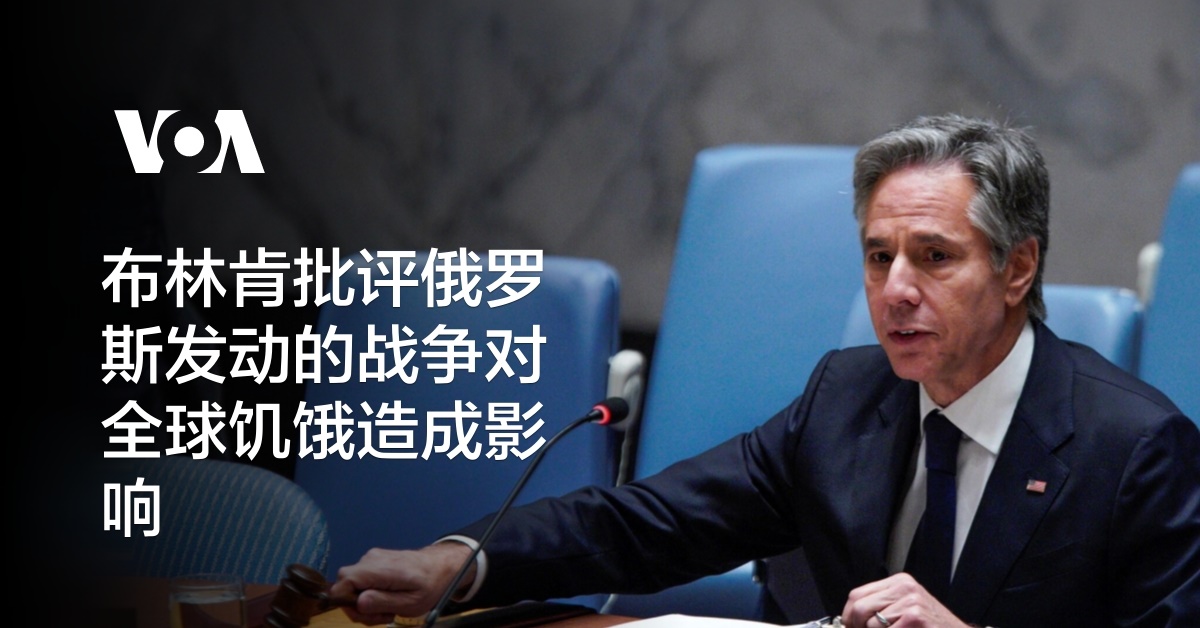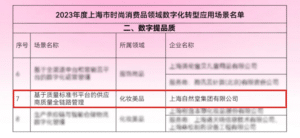Blinken criticizes wars waged by Russia for impact on global hunger

U.S. Secretary of State Antony Blinken condemned Russia’s “unjust and unjustified” war in Ukraine for its impact on global hunger at the United Nations on Thursday (Aug 3) and called for an end to the war. “Every member of this council, every member of the United Nations should tell Moscow, enough is enough. Enough is enough of using the Black Sea for blackmail,” Blinken said of Russia’s recent withdrawal from a year-old pact. The agreement enabled Ukraine to export nearly 33 million tons of grain to the world. “It’s enough to see the world’s most vulnerable people as leverage. It’s time for this unjust, unconscionable war to end.” As part of the U.S. presidency of the 15-member Security Council in August, Blinken Chairing a meeting on global food insecurity at the UN Security Council, he highlighted the link between conflict and hunger in crises around the world. “Resources are scarce, tensions are rising between communities and countries, and warring parties are weaponizing food to subjugate people,” he said. “In fact, conflict is the single largest driver of food insecurity, with violence and unrest pushing 117 million people into extreme poverty last year.” The Security Council unanimously adopted a four-page presidential statement calling for respect for international humanitarian law and Provide assistance to civilians in need. The council also highlighted the need to “break the vicious circle between armed conflict and food insecurity”. Separately, Secretary Blinken said nearly 90 countries, including much of the southern world, had signed a joint communiqué drafted by the United States pledging to end the use of famine, starvation and food as weapons of war. “Hunger must not be weaponized,” he said. Blinken also announced $362 million in new funding to address the drivers of food insecurity and build resilience in 11 African countries and Haiti. Since January 2021, Washington has provided more than $17.5 billion to address hunger and food insecurity, including more than $7.2 billion to the World Food Programme, almost half of the agency’s entire budget. The Russian envoy dismissed the West’s interest in food insecurity, saying it was only motivated by a desire to “demonize Russia”. Dmitry Polyanskiy, Russia’s deputy ambassador to the United Nations, said: “How do we talk about any desire in your country to solve the problem of international food security? All that drives you is the desire to punish Russia, the dream of giving It brings about a strategic failure. You don’t care about the interests of the countries of the southern world at all, and we do.” He said that if all Russia’s demands are met, Russia is ready to return to the Black Sea Food Initiative. He pointed to Moscow’s announcement that it will provide 25,000 to 50,000 tons of free food to six African countries in the next few months as a proof of its goodwill. Since Moscow unilaterally withdrew from the food initiative last month, Russia has repeatedly attacked several Ukrainian ports, destroying critical infrastructure, other installations and more than 180,000 tons of food. Moscow also warned that it would consider any vessel in the Black Sea to be a vessel carrying military cargo and therefore a legitimate target. Food Prices The World Bank said on Monday (July 31) that global food price inflation remains high. The most affected countries are located in Africa, North America, Latin America, South Asia, Europe and Central Asia. The United Nations Food and Agriculture Organization’s annual status of food security report released last month said the world was still recovering from the economic setback caused by the coronavirus pandemic and was still dealing with the impact of the war in Ukraine on food and energy markets. The Food and Agriculture Organization of the United Nations estimates that 691 million to 783 million people worldwide will face hunger in 2022, significantly higher than the level before the outbreak in 2019. Most hunger occurs at the regional level, with levels rising in Africa, the Caribbean and Western Asia. A record 250 million people suffered from severe food insecurity last year, Reena Ghelani, the United Nations’ famine prevention and response coordinator, told the council. She said 376,000 people faced famine in seven of those countries. Another 35 million people are on the brink of famine. She said: “Each of the seven countries where people faced similar famines last year was affected by armed conflict or extreme violence. Hunger and famine continue to threaten millions, especially in sub-Saharan Africa. The United Nations Zhou said that in Sudan, more than 6 million people (about 13 percent of the population) are one step away from famine. Due to conflict, economic recession and mass displacement, more than 20 million people across Sudan face very serious food insecurity The problem. In Somalia, displaced communities in parts of the country are still at risk of famine, despite scaled-up humanitarian aid and better-than-expected rainfall, which has moderated the effects of a devastating drought. At the same time, funding is short Compromised the ability of humanitarian groups to reach the most vulnerable in several high-risk countries.
Source link







